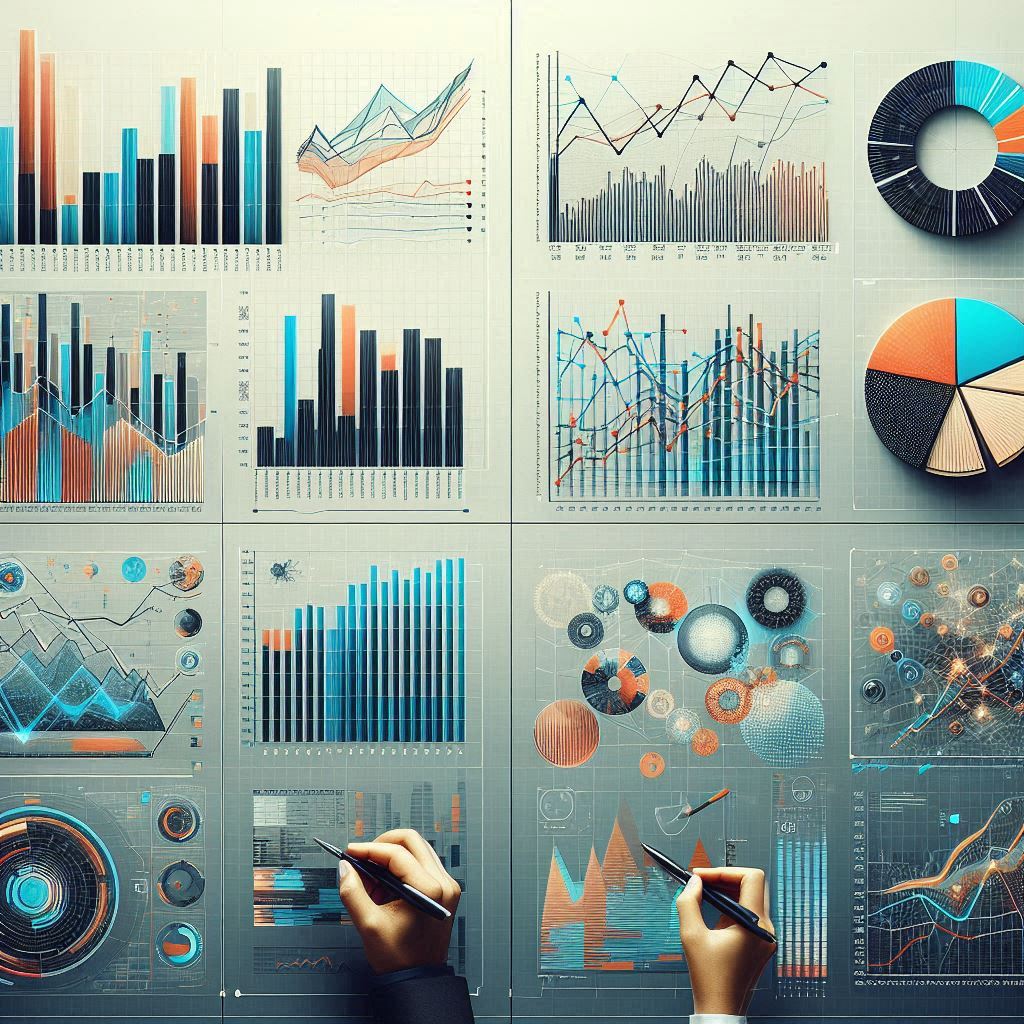Introduction
Data is voiceless and senseless, but it has the power of telling stories. Even in these cases, the intriguing stories become obscured in the numbers. Data visualization can help! The visual is made with charts and graphs to illustrate the figures. This therefore makes it much easier to comprehend. Enterprises now have vast amounts of data at their fingertips, providing an opportunity to gain valuable insights and make informed decisions. This blog post is here to share some tips to help you build effective data visualization techniques. This acts as a basis for your visualization, thus you will be able to have an accurate data story.
Choose the Right Data Visualization Technique
Chart types matter! Different charts work best for different visualization purposes. Here’s a quick guide to the data visualization best practices:
Bar charts: Great for comparing categories.
Line charts: Perfect for showing trends over time.
Pie charts: Handy for showcasing parts of a whole.
Scatter plots: Ideal for identifying relationships between variables.

Make it Super Clear
Less is more: Being careful not to show everything in your data visual at once, will keep the audience engaged and curious to know more. Center or narrow down on what is significant in your essay.
Big labels: The best approach is to make sure that titles and labels on your visual data are readable.
Colors help: Specific hues can serve to spotlight what needs to be emphasized. Don’t use too many! Rather focus on the color theory for your data visualization.
Tell a Story with Your Data
Data storytelling is one amazing thing to convey your ideas to the audience with a bigger imagination.
Think about what your data says. Think about the most important message.
Why does it matter? What made the numbers go up or down?
Point to the good stuff! Use arrows or boxes to show the most important parts of your chart.
Having correct data visualization tools to begin with.
Data Visualization Tools make it easy: After the decision of the right shapes the process of placement of charts and graphs seems a piece of cake to you. Online menus might be more interactive as you may play with buttons to ride the elevator and exit the room.
Change what you need: I think a great graph editor should give you the freedom to choose chart colors, as well as the size and shape of various elements in your chart to enhance the visualization of your data.
Get your data in Plots, and choose GPA-safe paths that form a link between the storage and devices that save information.
Popular Data Visualization tools: I am in the business of Tableau, Power BI, and Google Data which are the best of their breed among many others!
Common Mistakes to Avoid in Data Visualization
Don’t trick people: It’s the natural conditions that put barriers on how far one can think of them closer or farther than they appear.
Keep it flat: Indistinguishability in specific cases is for example 3-D graphics that appear as a hill of beans. Using simple plots in your data visualization is better.
Not too many colors: It won’t matter if it’s about your past situations because your appearance will only purchase a couple of colors. It is funny that we consider color fundamental but as colors come in excess, they are sometimes harrowing. Don’t go for congested color palates, rather take color theory into account for better data visualization.
Employ your own tables that are displayed by a picture to be easily understood by the audience.

Conclusion
Charts make data easy: Using visual data, like graphs, images, and charts helps you understand numbers better!
Choose charts wisely: Some charts are good for some things. Different charts are good for others.
Make things clear: Your charts and graphs should be easy to read.
Tell the story: What does your data show?
Tools help you: There are great tools to make charts and graphs.
